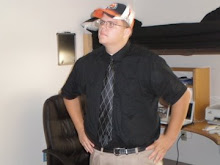1. Start with a partial fast for 24 hours. This means simply abstaining from food and caffeine, but drink juices and powerade, things like that.
2. After doing that a couple times, say once a week for two or three weeks, move on to a total fast for 24 hours.
3. Beyond that start doing longer and longer fasts. A 30 hour famine is common as are 36 hours.
4. Extended fasts need a little more direction
1. Carry around a set of breath mints. After around two days of no food, a body will begin to detox itself, and your breath will smell bad all day, regardless of how many times you rinse with mouth wash.
2. After the third day your body will be through the detox, but on the fourth day the serious hunger pains set in. First off let it be noted that the first days you will have hunger pain as well, but these go away with simply drinking water. Our bodies are so used to eating on certain schedules that at certain times our stomachs just get pains for food. By the fourth day however, the hunger pains do not go away as easily. These are typically associated with the hardest days of an extended fast.
3. Most extended fasters will say that from day 7 to about 21 are fairly easy. The hunger pains return then and is rough until about day 40
4. An extended fast should never exceed forty days, since this is near the boundary of the bodies ability to go without food.
5. Expect some major weight loss. For the first few days it may be up to about 2 lbs. a day and around 1 lb. a day after that. If you are experiencing much more weight loss than that, stop the fast and seek the approval of a physician for a fast.
WHAT TO EAT BEFORE:
Some may think it wise to eat a lot of food before a fast. This will only enlarge your stomach and cause the hunger pains to be more drastic and severe. Rather, progressively eat smaller and smaller meals, and eat a lot of fruit and veggies to prepare.
DEAL WITH DIZINESS IN THE FAST:
If you are doing a partial fast, this is a simple fix. Drink something to replenish the sugar and electrolytes like Gatorade or powerade.
But if you are doing a total fast, try and drink plenty of water. If you are still dizzy or have severe headaches, you may want to try putting a small amount of lemonade powder into the water to give you a little sugar. Not enough to be full out lemonade, but just a hint to get some sugar.
COMING OUT OF THE FAST:
Do not eat large quantities of food coming out of the fast because there is one result to that. You’ll get sick. Instead, on the first day, plenty of fruits and veggies. The next days start eating a little heavier food progressively. Like move to something like salads or lunch meat sandwiches. Go through this progression especially if you are coming out of an extended fast. A 24 hour fast will be much easier to come out of.
Then yesterday we all went to Panera Bread and had a meal together, during which we partook of the Eucharist, or Lord's Supper. We talked very briefly of the origin of sacred meals and took it together. We also briefly discussed community, but it was more of an experience type class, rather than a lesson.
Next week we will be talking about giving, financial decisions and the Sabbath.
